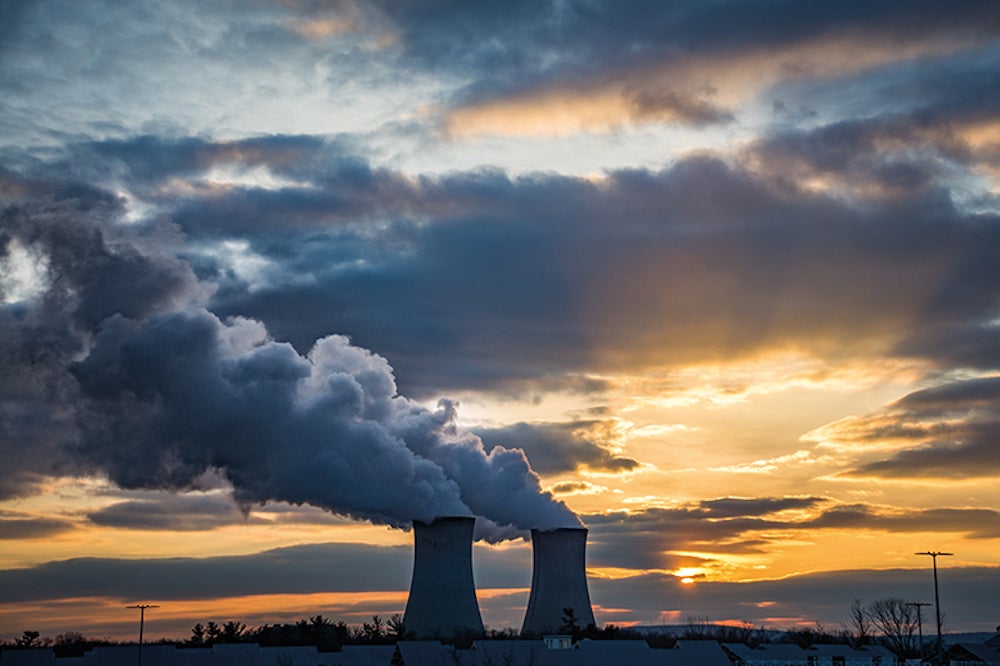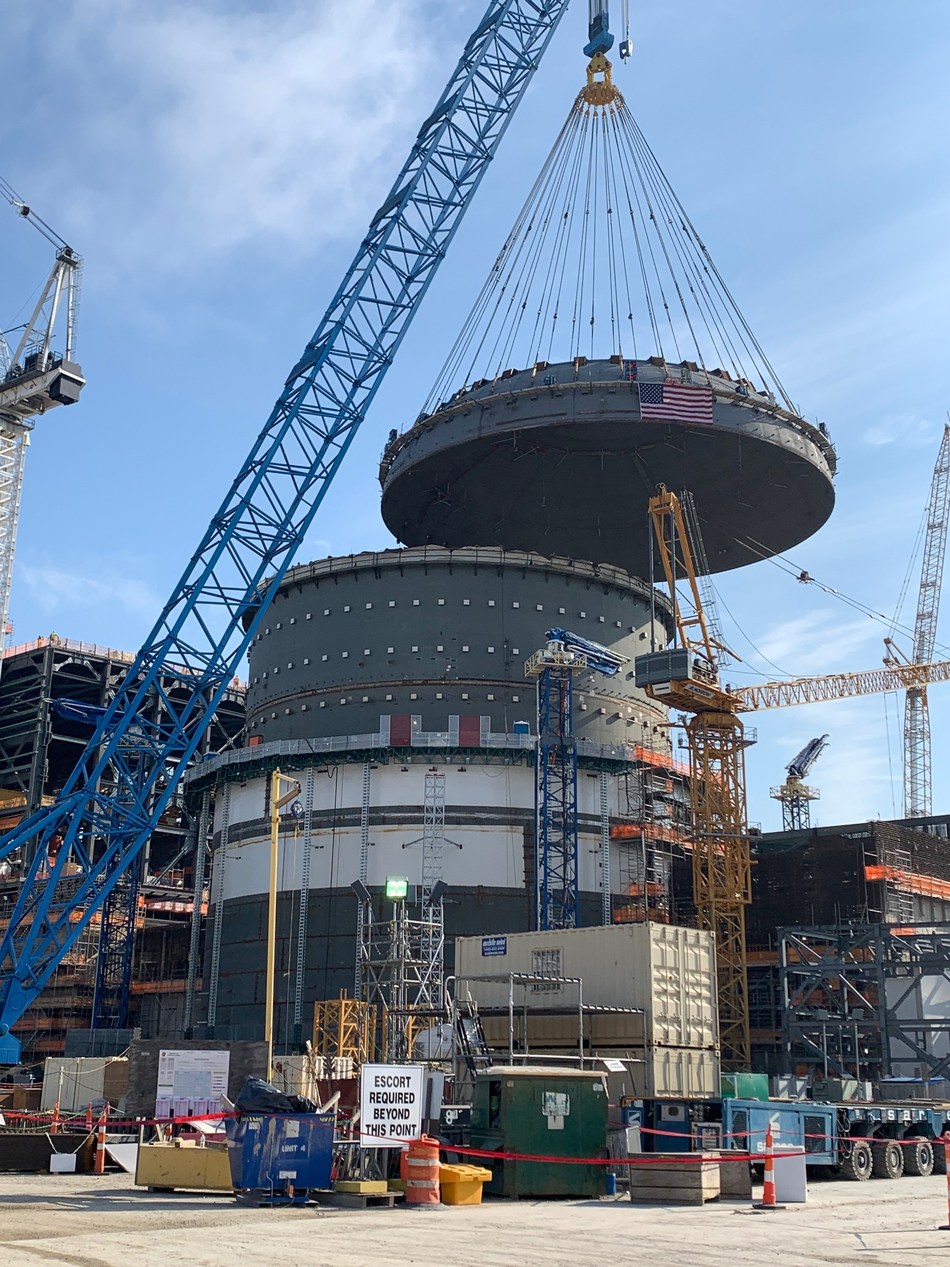
The US Nuclear Energy Institute (NEI) has called on US energy secretary Dan Brouillette for “urgent support” to ensure workers supporting nuclear operations and refuelling outages are included in federal designations of essential workers during the Covid-19 pandemic.
Nuclear energy supplies 20% of America’s electricity and will be vital in minimising the impact of the pandemic on the general public, according to the industry body.
Maria Korsnick, head of the NEI, said workers should be allowed to travel to plants and be provided with priority access to personal protective equipment (PPE) used in the course of regular nuclear power plant operation and during outages.
In a letter to energy secretary Brouillette last month, Korsnick explained the nuclear industry has “multi-stage plans to continue operations during a pandemic”. Plants have implemented the plans to “the degree required by local conditions,” she noted.
However, the NEI pointed out that 32 of the 98 commercial reactors in the US are planning to undergo essential refuelling outages this spring.
Refuelling outages, which usually take place every 18 months or two years, typically last for two to four weeks, and require several hundred specialist workers to be brought in.
These outages are essential to maintaining reliable and clean power generation, NEI says. However, some local communities have already expressed concern about the influx of workers required by outage work.
US nuclear plants adapt outage plans to deal with Covid-19
Local officials asked US utility Exelon to postpone the planned outage at the Limerick station in Pennsylvania. However, refuelling is going ahead because Exelon says it is critical to ensuring power availability in the region as the weather becomes warmer and electricity demand increases.
Exelon says the Limerick plant is following a “rigorous pandemic preparedness plan” that includes strict governance to prevent and slow the spread of the virus. All workers are undergoing symptom screening and body temperature checks before being allowed to enter the site.
Exelon’s website on the Limerick outage indicates that as of 6 April, there had been three confirmed cases of Covid-19 reported during the outage, and that 38 workers were in quarantine. Exelon notes it is using “very conservative” criteria and recommends quarantine out of an abundance of caution to protect its workforce.
What measures are being taken during nuclear plant refuelling outages?
Matt Wald of the NEI explained the importance of allowing refuelling outages to go ahead in a blog post. This confirms that the US industry has had pandemic guidelines in place since 2006, and that they were updated earlier this year.
Specific actions taken by operators will vary based on plant location and status, Wald says.
However, typical measures taken by nuclear plants include:
- Limiting face-to-face meetings
- Exercising social distancing
- Using PPE and hand sanitizer; screening workers; and disinfecting surfaces more often.
Operators are also directing employees who feel unwell to stay at home and encouraging them to seek medical attention.
Some non-critical maintenance activities that are due to be carried out during refuelling outages are being deferred.
For example, Dominion is planning to streamline outage work to minimise the number of workers needed at Millstone 2, where refuelling is scheduled for early April.
Under the company’s pandemic emergency plan, anyone who can work from home must do so. Temperatures of employees are also being monitored on entry to the site.
Impact of Covid-19 on Vogtle 3&4 construction

As to nuclear power plant construction projects in the US, the Covid-19 pandemic and government response may lead to disruption or delay at the Vogtle 3&4 construction project in Georgia, Southern Company told the US Securities and Exchange Commission (SEC) on 1 April.
“The effects of the continued outbreak of Covid-19 and related government responses could include extended disruptions to supply chains and capital markets, reduced labour availability and productivity, and a prolonged reduction in economic activity,” it said.
In particular, it noted these effects could disrupt or delay construction, testing, supervisory and support activities at the Vogtle expansion project.
Southern Nuclear Operating Company has put in place procedures designed to mitigate the risk of Covid-19 transmission at the construction site. These include worker-distancing measures; isolating individuals who are showing symptoms consistent with Covid-19, being tested for Covid-19 or who have been in close contact with such persons; and requiring self-quarantine.
Southern noted that it is too early to determine what impact, if any, the Covid-19 outbreak will have on the construction schedule or budget for Vogtle 3&4.
Since its SEC filing, the first coronavirus infection has been confirmed at the Vogtle nuclear plant construction site.
Last month Georgia Power announced a major construction milestone with the installation of the containment vessel top head at Vogtle 4.
Vogtle 3&4 are scheduled to begin commercial operation in November 2021 and November 2022.
US nuclear regulator relaxes working hours requirements during pandemic
Meanwhile, the US Nuclear Regulatory Commission (NRC) has decided to temporarily allow longer worker shifts to keep up mandatory staffing levels during the pandemic.
The basis for a waiver is the “sudden and potentially long-term reduction in available facility staffing”, resulting from the Covid-19 pandemic. These impacts were not considered during the rulemaking that established the 10 CFR 26.205(d) work hour controls, NRC said in a letter.
The shift extensions allow workers to be on the job for up to 86 hours in a seven-day period. According to the waiver, workers can be assigned 12-hour shifts for up to 14 consecutive days, although a minimum of six days off are required in any 30 days, and at least a 10-hour break must be provided between shifts.
With the increased hours, managers could shift nuclear plants from five or six-crew rotations a day to two 12-hour shifts, Thomas Basso, senior director of regulatory affairs at the NEI, told regulators. However, he noted industry will only ask for these exemptions if safe to do so.
NRC’s director of reactor regulation Ho Nieh said in the letter that NRC inspectors would “periodically review any issues concerning worker fatigue, and retains the right to rescind any exemption should circumstances warrant this.”
Some nuclear utilities are looking at the possibility of bringing former plant operators back into service. Another option being considered is sequestering crews on site.



